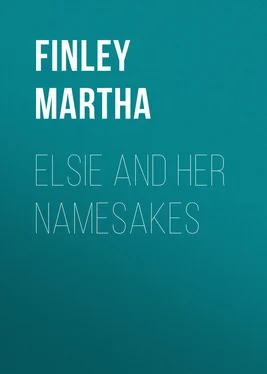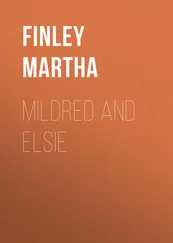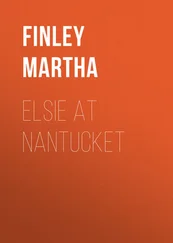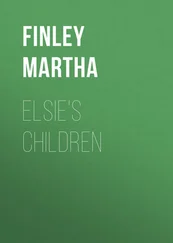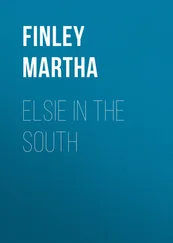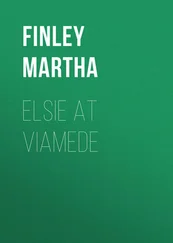Martha Finley - Elsie and Her Namesakes
Здесь есть возможность читать онлайн «Martha Finley - Elsie and Her Namesakes» — ознакомительный отрывок электронной книги совершенно бесплатно, а после прочтения отрывка купить полную версию. В некоторых случаях можно слушать аудио, скачать через торрент в формате fb2 и присутствует краткое содержание. Жанр: foreign_religion, Религиозная литература, foreign_antique, foreign_prose, на английском языке. Описание произведения, (предисловие) а так же отзывы посетителей доступны на портале библиотеки ЛибКат.
- Название:Elsie and Her Namesakes
- Автор:
- Жанр:
- Год:неизвестен
- ISBN:нет данных
- Рейтинг книги:4 / 5. Голосов: 1
-
Избранное:Добавить в избранное
- Отзывы:
-
Ваша оценка:
- 80
- 1
- 2
- 3
- 4
- 5
Elsie and Her Namesakes: краткое содержание, описание и аннотация
Предлагаем к чтению аннотацию, описание, краткое содержание или предисловие (зависит от того, что написал сам автор книги «Elsie and Her Namesakes»). Если вы не нашли необходимую информацию о книге — напишите в комментариях, мы постараемся отыскать её.
Elsie and Her Namesakes — читать онлайн ознакомительный отрывок
Ниже представлен текст книги, разбитый по страницам. Система сохранения места последней прочитанной страницы, позволяет с удобством читать онлайн бесплатно книгу «Elsie and Her Namesakes», без необходимости каждый раз заново искать на чём Вы остановились. Поставьте закладку, и сможете в любой момент перейти на страницу, на которой закончили чтение.
Интервал:
Закладка:
It had been rather hard for Ned to part from "papa and mamma" for even a few days, though with dear grandma and uncle left to him, sister and cousins also, and wearied with that grief and the exciting scenes of the day, he was soon ready to take to his berth and fall asleep.
The others found it too cool for comfort on the deck, but very pleasant in the well-warmed and lighted saloon. They sat and chatted there for some little time; then retired to their staterooms for the night.
The morning found Ned refreshed and strengthened, the rest in fine health and spirits. They made a cheerful, merry little company about the breakfast table, afterward took some exercise on the deck, then gathered about Grandma Elsie in the saloon and pleaded for one of her "lovely stories."
"Well, dears, what shall I tell of?" she asked with her own sweet smile. "Something more of our Washington or of others of our Presidents?"
"Oh, tell us about the time of our Civil War and the pictures Nast drew then," cried Elsie excitedly. "I saw something about him and his drawings the other day, and I should like to know more of him and his wonderful work. Was he an American, grandma?"
"No, my dear; he was born in the military barracks of Landau, a little fortified town of Germany, and came to this country at the age of six. He and his sister were brought here by their mother. The husband and father was then on a French man-of-war; afterward he enlisted on an American vessel, and he did not join his family until Thomas, his son, was ten years old, and mother and children had been four years in this country. A comrade of his told them he was coming, and the news made a great excitement in the family.
"The mother sent Thomas to buy a cake with which to welcome his father. As he was coming home with that he was passed by a closed cab. It suddenly stopped, a man sprang out, caught him up and put him in the cab, then got in himself. For an instant Thomas was frightened, thinking he was kidnapped. Then he found he was in his father's arms, and was full of joy; but he was troubled when he saw that between them they had crushed the cake. He thought his mother would be greatly disappointed by that. But she was so glad to see her husband that she did not seem to mind it – the damage to the cake; nor did the children, being so delighted to see their father and the many presents he had brought them from distant places, and to listen to all he had to tell about his travels.
"Thomas was a short, stout, moon-faced lad. He attended a German school for a short time after his father came home, but he was constantly drawing pictures. His teacher would say to him, 'Go finish your picture, Nast; you will never learn to read.' Often he would draw a file of soldiers or a pair of prize fighters; sometimes things he remembered from his life in Landau – as a little girl with her pet lamb or old Santa Claus with his pack.
"In 1860 he went to England, where he still made drawings. Every steamer brought letters from him and papers to the New York News . From England he went, that same year, to Italy to join Garibaldi."
"Who was Garibaldi, grandma, and what did Nast want to join him for?" asked Ned.
"To help him to get Italy free," replied Mrs. Travilla. "But I will not tell the story of Garibaldi now – some other time, perhaps. The war was not very long, and Nast stayed until it was over. In November of that same year he said 'Good-by' to his friends in Italy. Then he visited Rome, Florence and Genoa. Late in December he reached Landau, his native city. The old place had not changed, except that to him it looked much smaller than it had before. He went on through Germany, visiting art galleries and cathedrals. But he grew tired of it all and wanted to get home. He crossed the channel to England, and there heard talk of the brewing of war in this country, now his own land. He stayed a few days in London, then sailed for the United States, which he reached on February 1st, 1861. He had been gone a year, and now arrived in New York with only a dollar and a half in his pocket."
"Oh, how little after such long, hard work!" exclaimed Elsie Raymond.
"Yes," said Mrs. Travilla; "but he was brave and industrious and went on working as before. Mr. Lincoln had been elected to the Presidency the November before, and in March Nast went on to Washington to see his inauguration."
A portfolio lay on the table beside which Mrs. Travilla now sat, and she took it up and opened it, saying, "I have some articles in this which I have been saving for years past, among them some things about Nast – some of his own writing; for I have taken an interest in him ever since the time of our Civil War. Listen to this, written of that time when Lincoln was about to be inaugurated. Nast had been ordered by his paper – the News of New York – to go on to Washington to see the inaugural ceremony. Stopping in Philadelphia, he was near Lincoln during the celebrated speech and flag-raising at Independence Hall, and afterward heard the address Lincoln made from the balcony of the Continental Hotel.
"At Washington Nast stopped at the Willard Hotel, which was Lincoln's headquarters. A feeling of shuddering horror, such as a bad dream sometimes gives us, came over him there. The men who had sworn that 'Abe Lincoln' should not take his seat were not gone. Now I will read you what he says about that time."
The children sat very still, listening attentively – Elsie Raymond with almost breathless interest – while her grandmother read.
"'It seemed to me that the shadow of death was everywhere. I had endless visions of black funeral parades accompanied by mournful music. It was as if the whole city were mined, and I know now that it was figuratively true. A single yell of defiance would have inflamed a mob. A shot would have started a conflict. In my room at the Willard Hotel I was trying to work. I picked up my pencils and laid them down as many as a dozen times. I got up at last and walked the floor. Presently in the rooms next mine other men were walking; I could hear them in the silence. My head was beginning to throb, and I sat down and pressed my hands to my temples. Then all at once, in the Ebbett House, across the way, a window was flung up and a man stepped out on the balcony. The footsteps about me ceased. Everybody had heard the man and was waiting breathlessly to see what he would do. Suddenly, in a rich, powerful voice he began to sing "The Star Spangled Banner." The result was extraordinary. Windows were thrown up. Crowds gathered on the streets. A multitude of voices joined the song. When it was over the street rang with cheers. The men in the rooms next mine joined me in the corridor. The hotel came to life. Guests wept and flung their arms about one another. Dissension and threats were silenced. It seemed to me, and I believe to all of us, that Washington had been saved by the inspiration of an unknown man with a voice to sing that grand old song of songs.'"
"Who was that man, grandma?" asked Ned.
"I can't tell you that, Neddie," she replied. "I think it has never been known who he was."
"Is there some more story about Nast and his pictures?" he asked.
"Yes; he made a great many more pictures. One, on the first page of the Christmas Harper , was called 'Santa Claus.' It showed him dressed in the Stars and Stripes, distributing presents in the military camp. In the same paper was another called 'Christmas Eve.' It had two parts: one, in a large wreath, was a picture of the soldier's family at home; and in another wreath was the soldier by the camp-fire, looking at a picture of his wife and children. Letters came from all parts of the Union with thanks for that picture. A colonel wrote that it reached him on Christmas Eve; that he unfolded it by the light of his camp-fire and wept over it. 'It was only a picture,' he said, 'but I couldn't help it.'"
Читать дальшеИнтервал:
Закладка:
Похожие книги на «Elsie and Her Namesakes»
Представляем Вашему вниманию похожие книги на «Elsie and Her Namesakes» списком для выбора. Мы отобрали схожую по названию и смыслу литературу в надежде предоставить читателям больше вариантов отыскать новые, интересные, ещё непрочитанные произведения.
Обсуждение, отзывы о книге «Elsie and Her Namesakes» и просто собственные мнения читателей. Оставьте ваши комментарии, напишите, что Вы думаете о произведении, его смысле или главных героях. Укажите что конкретно понравилось, а что нет, и почему Вы так считаете.
